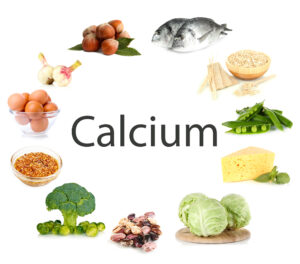 Study Shows Calcium and Vitamin D Keep Bones Strong after Menopause
Study Shows Calcium and Vitamin D Keep Bones Strong after Menopause
According to the U.S. National Osteoporosis Foundation, women can lose up to 20% of their bone mass in the five to seven years after menopause, making them more susceptible to osteoporosis and fractures.
In a recent study from the British Medical Journal, it was confirmed that taking both calcium and vitamin D together on a daily basis significantly reduces the risk of bone fractures.
The research was based on a review of seven controlled trials comprising almost 70,000 people throughout the U.S. and Europe. These findings are important because this is one of the few studies to show that vitamin D alone does not reduce the risk of fracture.
John Robbins, a professor of internal medicine and co-author of the study says: “My earlier research in Sacramento included more than 1,000 healthy, postmenopausal women and concluded that taking calcium and vitamin D together helped them preserve bone health and prevent fractures. This latest analysis, because it incorporates so many more people, really confirms our earlier conclusions.”
The National Osteoporosis Foundation defines osteoporosis as porous bone; a disease characterized by low bone mass and structural deterioration of bone tissue. This can lead to fragile bones and an increased susceptibility to fractures, especially of the hip, spine and wrist, although any bone can be affected. The foundation estimates that 10 million Americans have osteoporosis, of which 80% are women and 20% men.
Regarding the use of calcium and vitamin D together, Robbins said: “This (recent) study supports a growing consensus that combined calcium and vitamin D is more effective than vitamin D alone in reducing a variety of fractures. Interestingly, this combination of supplements benefits both women and men of all ages, which is not something we fully expected to find.”
In addition to strengthening bones, recent research has shown that calcium is also an effective insomnia remedy, as well as being an important agent to lower blood pressure, alleviate symptoms of premenstrual syndrome and protect against colon cancer. More and more nutritional supplements are being formulated with calcium and vitamin D because of their wide array of benefits.
In order to prevent a magnesium deficiency, supplements should contain a 2 to 1 ratio of calcium to magnesium (twice as much calcium as magnesium). The original research on this recommended ratio appeared in 1935 in the Journal of Physiological Reviews. In addition, a softgel form is more digestible than tablets. Softgels that are formulated with carrier oils such as rice bran oil have been shown to increase mineral absorption. One formula that has these qualities is Sleep Minerals II from Nutrition Breakthroughs.
Sleep Minerals II contains highly absorbable forms of calcium and magnesium, the best minerals for sleeplessness and insomnia, as well as for heart health, restless legs syndrome, bone strength and menopause insomnia. The formula also includes vitamin D and zinc and is delivered in a softgel form with healthy carrier oils, making it more quickly assimilated than tablets or capsules and providing a deeper, longer-lasting sleep.
Valerie H. of Santa Clarita, California says: “I had such severe menopause insomnia that it took me hours to fall asleep even though I was extremely tired. My legs also had crawling and tingling feelings at night. I got the Sleep Minerals and after about a week, it started to work really well. I fall asleep now within 20 minutes and no more restless legs.”
The National Osteoporosis Foundation recommends getting the daily-recommended amounts of calcium and vitamin D, engaging in regular weight-bearing and muscle-strengthening exercises, and avoiding smoking.
For more information on Sleep Minerals II, click this link.






